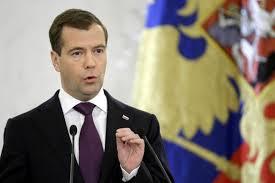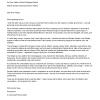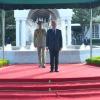Dear Mr. Medvedev,
The media informs us repetitively of your commitment to increasing entrepreneurship and innovation in Russia.
The purpose of this letter is to provide an analysis of what needs to be done in order for that to happen.
Entrepreneurship and innovation require psychological energy of the entrepreneur or innovator because “to entrepreneur” means to do something new and in starting something new there is always uncertainty and there is risk. Both consume psychological energy.
Uncertainty consumes energy because the innovator has to imagine what has to be done and how. The information is not given. It has to be created, and creativity consumes energy.
Risk consumes psychological energy because the entrepreneurial endeavor might not succeed; the investment in time and money can be lost. Worries consume lots of energy.
Uncertainty could be high in a country in transition or still developing: there are no competent marketing research entities, no reliable governmental statistical reporting agencies, no known and easily accessible information about how to, for instance, get a license or a permit., etc.
Now, how about risk?
Imagine a situation in which the government is not only big and bureaucratic, but also corrupt. There is a chance that if your business succeeds, corrupt government officials might take it from you by fabricating accusations, or will award licenses and money-making opportunities to a competitor who is either paying bribe money or is owned indirectly by those in power.
In this unfair competition, your risk might be prohibitive.
Here is a Russian example.
A Russian businessman whose company imported medical equipment was negotiating a $200 million deal with a Dutch company. Good, right?
One day during the negotiations, the police showed up at his home, handcuffed him, and put him in jail. They produced no search warrant and no reason for their action, and continued to refuse him access to an attorney.
After three months, the police visited him in jail and told him he was free to go home.
Again, no explanation was given, either for why he was jailed or why he was being released.
When he returned to work, he discovered that his competition had made a deal with the Dutch company he was negotiating. He believes that the competition simply isolated him by bribing the police to arrest him. Then, they stole his deal.
Sure, he can sue. But whom? How? The court, he believes, is corrupt too. Everyone appears to be for sale.
Would you invest in a country like that? Would you start a business in a country like that?
If entrepreneurs have any choice, they will put their money in a place where the risk is controllable and the uncertainty manageable.
Those who do not have a choice keep a low profile; thus, entrepreneurship is stymied, and so is innovation. Why take the risk? Why endure sleepless nights?
I acknowledge that foreign investment capital continues, so far, to come in. Does this fact contradict my analysis?
I suggest that these are investments with a short payback period. These investors want to get their invested money out as soon as possible. They do not stay and develop the country. On the contrary, in order to manage their risk they exploit the country as much and as fast as possible. Naturally. But this is not what you are looking for. From my understanding from the media, you are trying to increase local, indigenous, Russian innovation and entrepreneurship.
In order to encourage entrepreneurship, the government needs to reduce uncertainty and reduce risk.
To reduce uncertainty the government should be hard working on de bureaucratization of its processes, and provide information that is reliable and consistent.
And to reduce risk it must stop corruption, first and above all.
It is either corruption or entrepreneurship. It cannot be both.
Management education for increased entrepreneurship and high-tech centers for innovation might project to the public that the government is taking action but that is not where the root problem is and thus not where the root solution can be found.
Thank you, Mr. Prime Minister.
Sincerely,
Prof. Dr. Ichak Kalderon Adizes
President , The Adizes Institute
Santa Barbara, California, USA
















